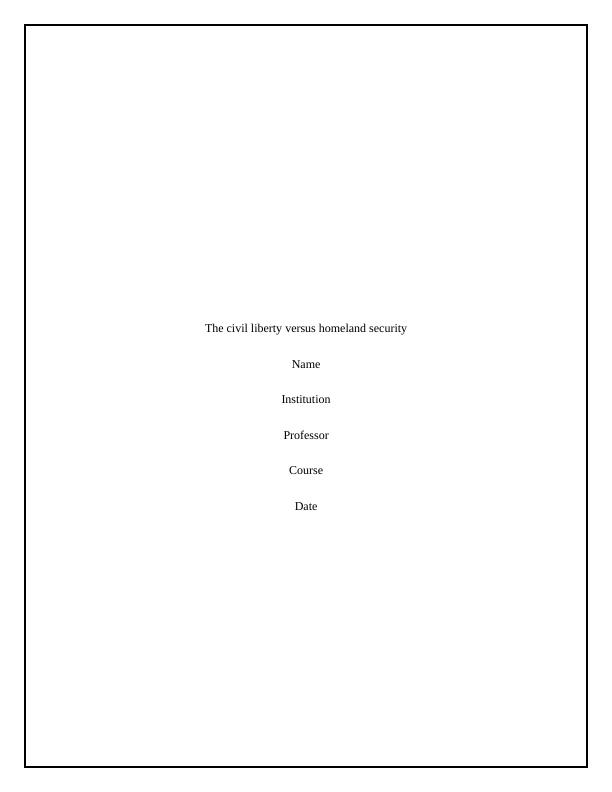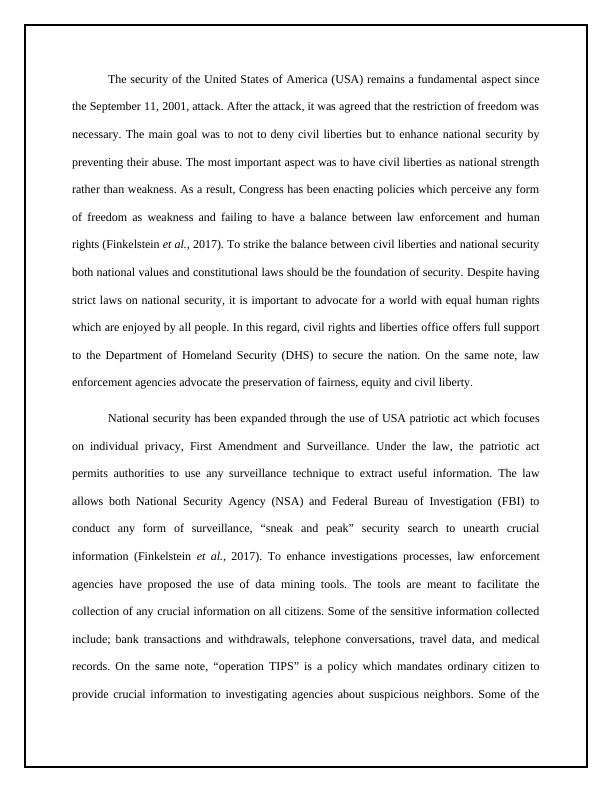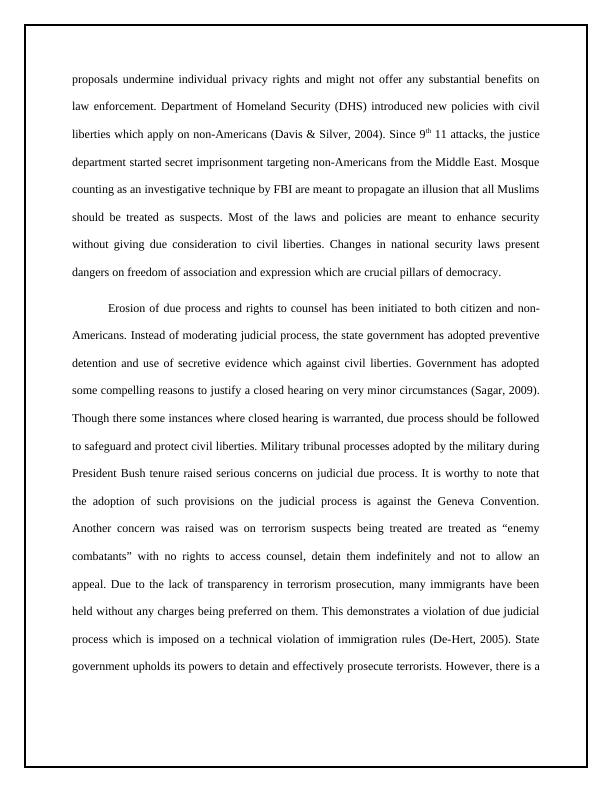The Civil Liberty versus Homeland Security
6 Pages1461 Words88 Views
Added on 2023-01-17
About This Document
This article examines the balance between civil liberties and national security in the United States, focusing on the impact of policies on individual privacy and rights. It discusses the USA Patriot Act, surveillance techniques, data mining, and the erosion of due process and rights to counsel. The role of the Civil Rights and Civil Liberties (CRCL) offices in advocating for individual liberties and equal treatment is also explored.
The Civil Liberty versus Homeland Security
Added on 2023-01-17
ShareRelated Documents
End of preview
Want to access all the pages? Upload your documents or become a member.
Pros and Cons of the Patriot Act
|5
|856
|67
Roles of Intelligence Agencies in Homeland Security
|4
|715
|207
Critical Infrastructure Authorities Assignment 2022
|4
|846
|24
Security Assignment | Foreign Intelligence Surveillance Act
|3
|373
|149
American Government | Essay
|4
|834
|12
Homeland Security: Agencies and Expanded Efforts
|4
|761
|383



